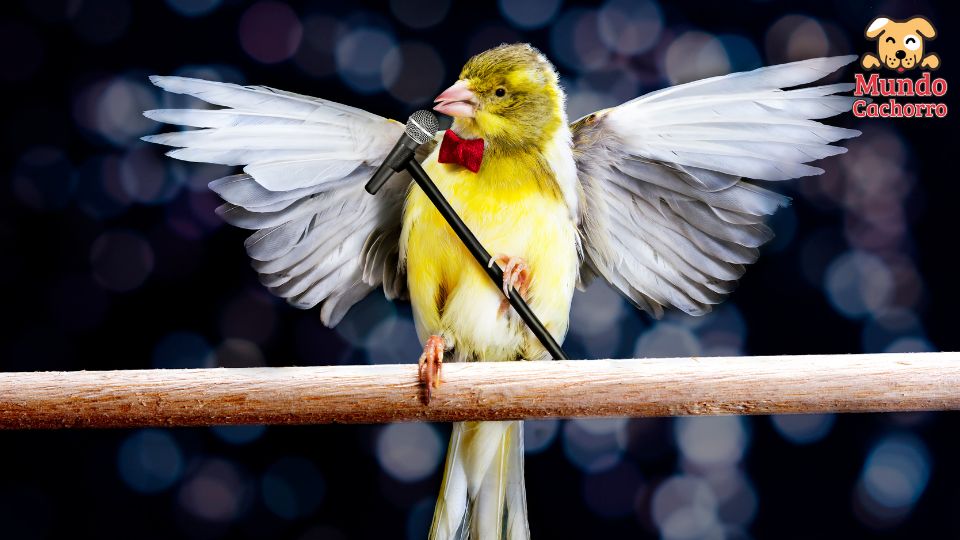Canaries are known for their melodious singing, but not all canaries sing with the same quality or frequency.
There are several techniques and cares that can help to improve the singing of these birds.
In this post we leave you with a series of tips that can help canaries sing better. 
Tips to make canaries sing better
Here are some detailed tips for promoting and optimizing canary singing.
Adequate food
A balanced diet is essential for the overall health of canaries and thus their ability to sing.
Be sure to provide a high quality seed mix, supplemented with fresh fruits and vegetables.
Foods such as apples, spinach, broccoli and carrots can be very beneficial.
In addition, bird-specific vitamin and mineral supplements can help maintain their optimal vocal health.
2. Surroundings and environment
The environment in which the canary lives plays a crucial role in its well-being and singing.
Canaries need a calm and stress-free environment to sing well. Place the cage in a place where there is good natural light but where it is protected from drafts and sudden temperature changes.
Make sure the cage is spacious enough for the canary to move freely.
3. Stimulation and exercise
Regular exercise is important to keep canaries active and healthy.
Provide toys and perches of different sizes and shapes to keep the canary entertained and exercised.
In addition, mental stimulation through interactions and games can keep the canary happy and eager to sing.
4. Exposure to sunlight
Sunlight is vital for the health of canaries, as it helps them synthesize vitamin D, which is necessary for calcium absorption.
However, exposure must be controlled.
About 30 minutes of direct sunlight per day is sufficient, always protecting the canary from high temperatures and direct sunlight during the most intense hours of the day.
5. Teaching and encouragement of singing
Canaries can learn to sing better if they are exposed to other canaries that sing well or to recordings of canaries singing.
Play recordings of canaries singing for 15-20 minutes a day to stimulate their singing.
Make sure the recordings are of high quality and varied to prevent the canary from getting bored.
6. Avoid stress
Stress can inhibit canaries’ singing.
Avoid frequent changes in the environment and do not move the cage constantly.
Make sure the canary has a quiet place to rest and sleep.
Avoid excessive noise and constant interruptions.
7. Medical care
Taking your canary for regular checkups with a veterinarian who specializes in birds can help detect and treat any health problems that may be affecting their singing.
Parasites, infections and nutritional deficiencies are some of the conditions that can negatively affect a canary’s singing.
8. Cage maintenance
Keeping the cage clean is crucial to your canary’s health.
Clean the cage regularly, changing the bottom paper and washing the feeders and drinkers.
A clean cage prevents diseases that can affect the canary’s singing.
9. Company and socialization
Although canaries are known to be solitary, some may benefit from the company of other canaries.
However, this can vary depending on the character of the bird.
Observing how your canary reacts to the presence of others can help you decide whether it should be alone or in company.
10. Patience and consistency
Finally, patience and consistency are key.
Don’t expect immediate results.
Provide consistent care and follow the tips on a regular basis to see a gradual improvement in your canary’s singing.
Implementing these tips can help your canary develop a stronger, more melodious song, improving his overall well-being and singing ability.
With proper attention and care, you can enjoy the beautiful music these birds are capable of producing.







